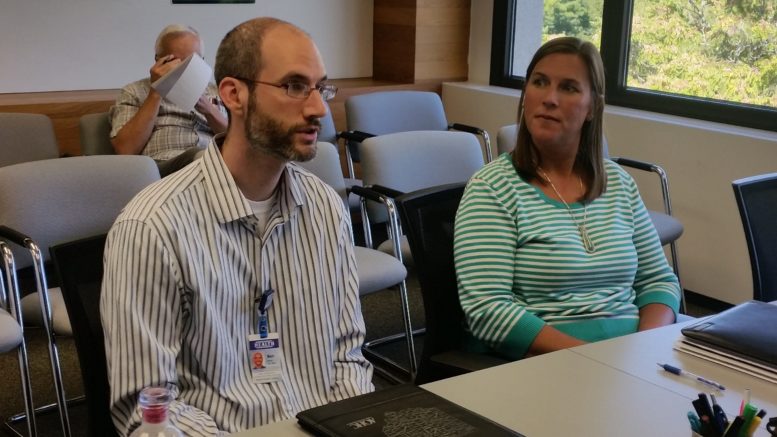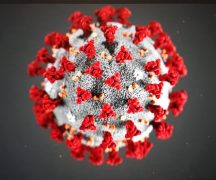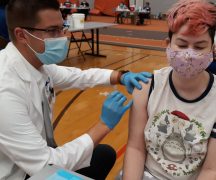By JAN LARSON McLAUGHLIN
BG Independent News
After months of battling the coronavirus pandemic, Wood County Health Commissioner Ben Batey believes public health must work against another pandemic – of racial inequality.
“It truly is a public health issue,” Batey said Thursday evening during the Wood County Board of Health meeting.
Across Ohio, health commissioners are recognizing the inequality that is affecting the health of people of color, he said. All people deserve the same opportunities for good health, he added.
“People are being held back based on the color of their skin,” Batey said. “We need to provide our voice in this conversation.”
Batey suggested a survey asking the community what the health department can do better, and how it can be more responsive to the community.
“We want to keep this on everyone’s radar,” he said. “How can public health partner better?”
Batey said a resolution may be presented to the board – “to make sure we are playing our part.”
Also during Thursday’s meeting, the board agreed to file a complaint with the Ohio EPA asking that unsanitary sewage conditions in Perry Township be investigated.
Lana Glore, director of the environmental division at the health department, said that about 14 homes in the West Millgrove area need to be connected to public sewer systems due to failing septic systems.
“This is one of our remaining critical areas in the county,” Glore said.
By filing with the EPA, efforts to hook the homes into Northwestern Water and Sewer District sewer lines already in the area would be more likely to get grant funding, she said.
In other business at Thursday’s meeting, the board agreed that the WIC program should be moved back to the health department building on East Gypsy Lane Road, from its current location on Dunbridge Road.
Space in the health center can be converted for WIC, which is the nutrition program for pregnant and nursing women, infants and children. The program provides services for up to 400 people a month, according to Jackie Mears, who heads the program.
By moving WIC back into the health department building, families will also be able to access a variety of health center services, such as vaccinations, dental care and physician appointments.
Also at the meeting, the board entered into an agreement with BGSU, which will conduct mosquito surveillance and research.





